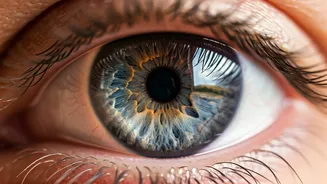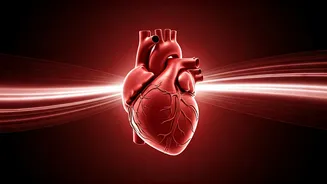The Science of Breaks
Our brains are constantly working, processing information, and making connections. Just like any other machine, the brain needs breaks to function optimally.
The article proposes that short, frequent 'micro-rests' are crucial for mental health and improved memory. These aren't the same as long, drawn-out breaks; instead, they are brief moments of respite interspersed throughout the day. These micro-rests allow the brain to reset, consolidate information, and recharge, preventing mental fatigue and enhancing cognitive performance. The concept is rooted in the understanding that the brain isn't designed for continuous, uninterrupted work. It thrives on periods of focus punctuated by short periods of disengagement.
The 2-Minute Solution
The scientist's method is remarkably simple: incorporate short breaks of just a couple of minutes into your routine. During these micro-rests, it's advised to step away from the task at hand, whether it's work, studying, or any activity requiring mental focus. Engage in a brief, non-demanding activity, such as looking out the window, taking a few deep breaths, stretching, or simply closing your eyes for a moment. The goal is to give your brain a chance to detach from the immediate task and allow it to refresh. The frequency of these micro-rests is key. The article suggests incorporating them every 20-30 minutes, or whenever you start to feel mentally drained. This consistent practice can dramatically improve focus, memory, and overall mental well-being.
Memory and Focus Boost
How do micro-rests enhance memory? By providing the brain with the opportunity to consolidate information. When you focus intensely on a task, your brain is actively encoding new information. These are short pauses from the process that allows the brain to sort and store the new material. Micro-rests also reduce mental fatigue. When the brain is constantly engaged in a single task, it becomes tired, making it harder to concentrate and remember information. Taking short breaks prevents burnout and allows you to return to the task with renewed energy and focus. The scientist argues that incorporating these practices consistently can significantly improve your ability to learn and retain information.
Implementing Micro-Rests
Integrating micro-rests into your daily life is straightforward. Start by setting reminders on your phone or using a timer to prompt breaks every half hour. When the reminder goes off, take a moment to step away from your work or study area. During your micro-rest, choose a relaxing activity that doesn't require much mental effort. Simple activities are optimal, as the goal is to allow your brain to rest and rejuvenate. Experiment with different types of micro-rests to find what works best for you. Some people find that listening to calming music is effective, while others prefer short walks or simple stretches. The key is to find activities that help you disconnect and relax.
Long-Term Benefits
The long-term benefits of micro-rests extend beyond improved memory and focus. They can contribute to reduced stress levels and overall mental health. Consistent use of micro-rests can help regulate your stress response, preventing burnout and improving your ability to manage stress. This simple technique can improve your cognitive function and enhance your overall quality of life. The science shows a direct link between mental well-being and productivity, and the benefits continue to evolve with each implemented break. By integrating these short breaks into your routine, you can take a significant step towards a healthier, more productive, and more mentally resilient life. Remember that the ultimate goal is not just about better memory, but about cultivating a balanced and thriving mind.















